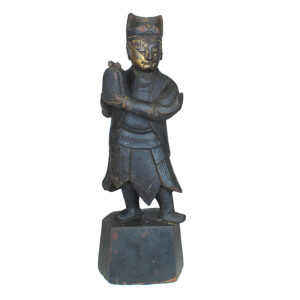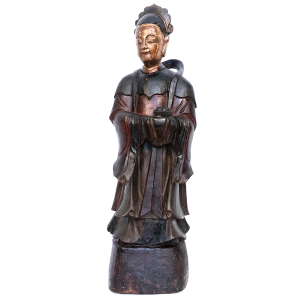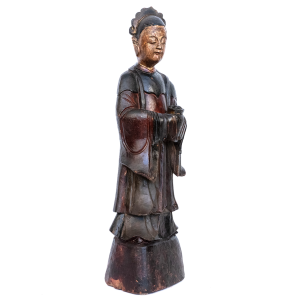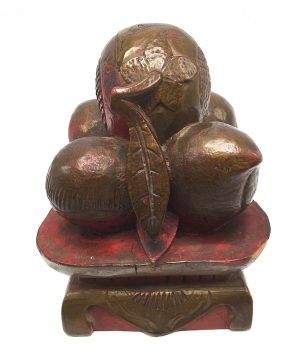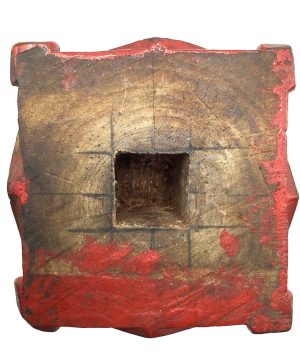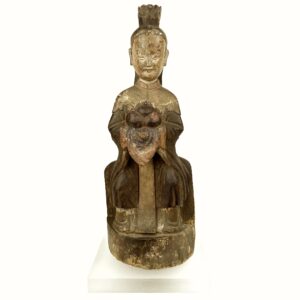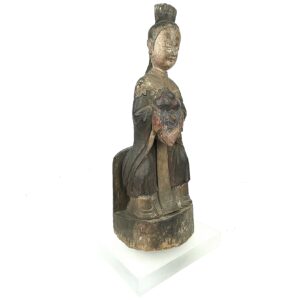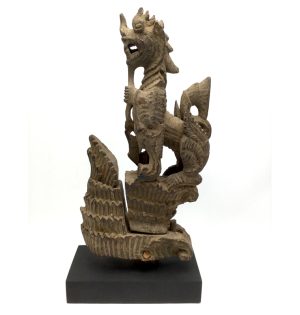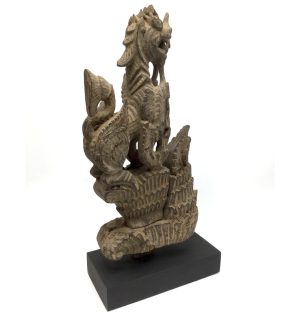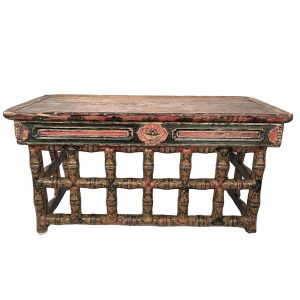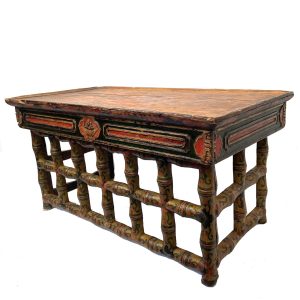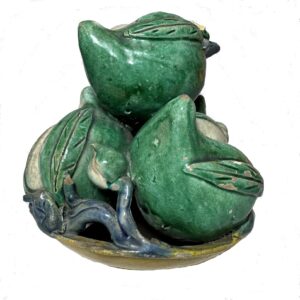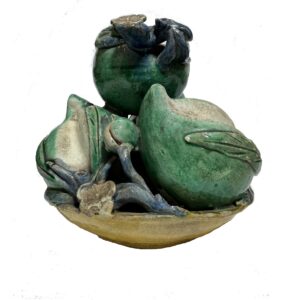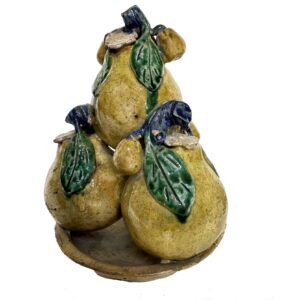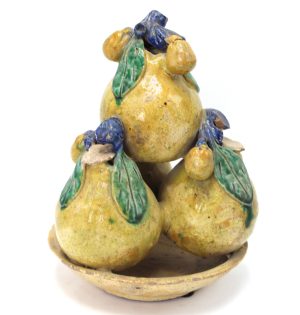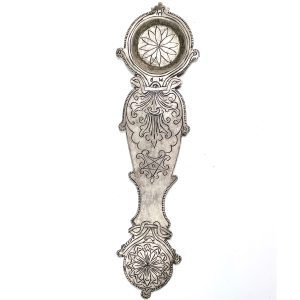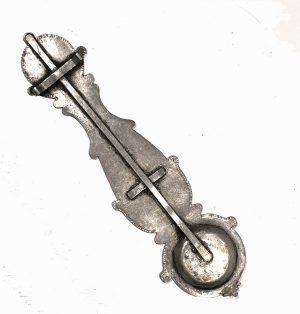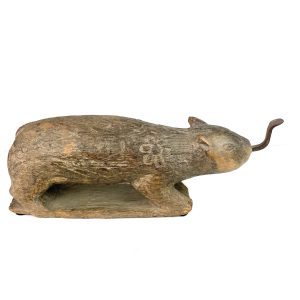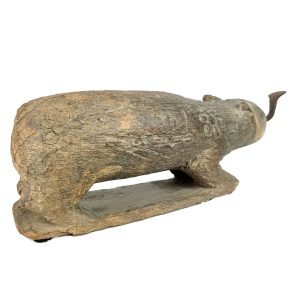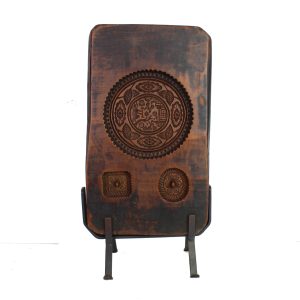Showing 1–12 of 20 results
-
Sale!


$435.00 Original price was: $435.00.$365.00Current price is: $365.00.
H: 15.5″. W: 5.5″. D: 4.24″ | FREE SHIPPING WITHIN CONTINENTAL U.S.
Taoist attendant holding an offerings tied with ribbons that symbolized longevity for generations. Some gilt and lacquer has naturally darkened from years age and incense.
-
Sale!


$2,400.00 Original price was: $2,400.00.$1,950.00Current price is: $1,950.00.
H: 25″ W: 7.5″ D: 6″ | CALL 213-568-3030 OR EMAIL [email protected] FOR SHIPPING.
Graceful celestial attendant carrying offerings with ribbon winding around her with a modest and serene demeanor honoring the deity she attends.
-
Sale!


$225.00 Original price was: $225.00.$155.00Current price is: $155.00.
H: 4.75 ” Dia: 3.675 ” | FREE SHIPPING WITHIN CONTINENTAL U.S.
This carved food offering was an auspicious bed ornament to bring the lucky couple prosperity, health, a long life and many sons as the pomegranate symbolizes fertility, the peaches longevity. Carved offerings were often wedding gifts.
-
Sale!


$595.00 Original price was: $595.00.$450.00Current price is: $450.00.
H: 15.5″ W: 7″ D: 4.5″ | FREE SHIPPING WITHIN CONTINENTAL U.S.
Reverent female Taoist attendant holding offering plate of 3 dumplings or fruits symbolizing 3 ancient gold or silver coins as a symbol of wealth and a wish for passing 3 imperial examination levels to assure the family’s status and financial stability.
-


$325.00
H: 14.5” W: 17.75” D: 3.375” | FREE SHIPPING WITHIN CONTINENTAL U.S.!
Finely carved figures were attached to ox cart yokes to protect farmers from malevolent spirits who inhabited all seen/unseen sectors of their world. . This beautifully carved ox cart yolk image is a chinthe, a mythical Burmese lion/dragon creature commonly decorating many everyday items. A propitious spiritual and protective guardian, the animalsymbolizes power, courage, and strength. This carving displays the common traits of a lions with a long face, large eyes, a long sharp nose, a lion-like beard, and a flame-like shape on the top of his head. Masterfully carved with careful attention to details, see the deeply incised hairs that cover his body. The 2-part piece is held together with a wooden plug. Though for daily use, Burmese craftsmen created beautiful objects and finished them with the best materials they could afford.
-
Sale!


$525.00 Original price was: $525.00.$495.00Current price is: $495.00.
H: 7.75” W: 3.5″ D: 3.5″ | FREE SHIPPING within continental U.S.
Rare and charming carved attendant pair to flank deities on circular pedestals presenting boxed offerings with ribbons as wish for longevity.
-
Sale!


$750.00 Original price was: $750.00.$550.00Current price is: $550.00.
Ht: 13.75” W: 26.25” D: 13.125” | FOR SHIPPING INFORMATION CAL 213-568-3030 OR EMAIL [email protected]
One of a pair of Tibetan antique folding traveling prayer/study table for monks or nomadic families to lay out sutras (scriptures), scrolls, books, other study materials. Decorated with painted florals and fruit offering bowl symbolizing flowering of enlightenment and opening of the heart.
-
Sale!


$450.00 Original price was: $450.00.$295.00Current price is: $295.00.
Ht: 5.5” Dia: 6” | FREE SHIPPING WITHIN CONTINENTAL U.S.
Shiwan stoneware peaches and lotuses on footed bowl auspicious symbols associated with springtime, fertility, long healthy life for many generations and therefore are propitious gifts for birthdays, especially for the elderly.
-
Sale!


$375.00 Original price was: $375.00.$295.00Current price is: $295.00.
H: 8.75″ DIA: 6.75 ” | FREE SHIPPING WITHIN CONTINENTAL U.S.!
Shiwan stoneware glazed sculptures of fruit symbolizing life and new beginnings to place on temple or home altar. They augment plates of fresh stacked fresh fruit to honor ancestors. These pears symbolize long life.
-
Sale!


$225.00 Original price was: $225.00.$175.00Current price is: $175.00.
H: 6.25 ” W:1.625 ” D:.25 ” | FREE SHIPPING WITHIN CONTINENTAL U.S.
Antique silver puja spoon used to offer water to the gods to show respect. Hindus use water to cleanse and purify one’s body, mind and spirit. The lotus symbolizes Lakshmi, the Goddess of wealth and prosperity.
-


$395.00
SOLD
This antique coconut grater is a very practical multi-use creation designed to cut, grate, shave, husk, and shred coconuts and large fruits and vegetables. Some were carved as crouching rabbits and others like this were realistic renderings of small mammals. Its decorative appeal includes lovely 6-petal flowers above its four legs and elegantly curved and metal piece extending ” W:from its mouth. With its warm and rustic feel, it would be a unique decorative addition to any kitchen and an interesting conversational piece.
-


$850.00
The Mid Autumn Moon Festival, also called the Mooncake Festival, is the 2nd most important holiday after the Chinese New Year, celebrated when the full moon is at its brightest point on the 15th day of the 8th month of the lunar calendar. It is a time for multi-generational gatherings when families dine together in harmony,…
End of content
End of content

